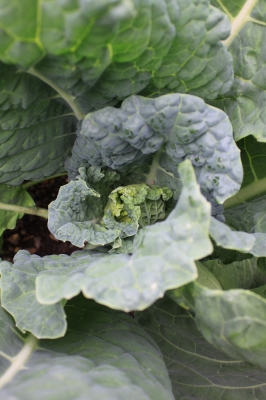
A new project to be undertaken by the Produce Quality Centre, a collaboration between NRI and East Malling Research (EMR), aims to increase the storage life of the winter vegetables cabbage and swede.
White cabbage and swede production in the UK cover 5700 hectares in total, with a farm-gate value of £54 million for cabbage and £29.9 million for swede. In order to regulate the supply of produce to the UK market, winter cabbage needs to be stored for up to 11 months, through cold storage or controlled atmosphere storage.
Significant losses in winter cabbage and swedes occur after harvest with up to 30-40% wastage during storage, due to fungal decay and physiological breakdown.
While progress has been made on controlling postharvest diseases for other stored crops such as apples and pears, less is known regarding the control of rotting in cabbage.
'Reducing wastage in stored winter cabbage and swede', with funding from the Horticultural Development Council (HDC), aims to improve the quality of cabbage and swede in storage, reduce the incidence of disease and evaluate the use of Biological Control Agents for disease control and for maintaining crop health.
The project will develop an integrated strategy to reduce postharvest wastage in cabbage and swede, based on a combination of treatments - evaluating ozone, and ethylene removal strategies alongside improved calcium/nutrient uptake and the use of biological control agents. It will reduce the incidence of rotting and postharvest disease in the vegetables when stored, reducing the amount of wastage, lowering crop residues and increasing the profitability of the stored product.

